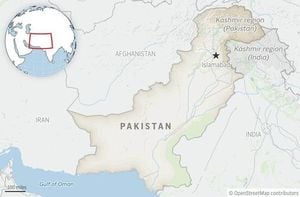Germany is set to undergo several notable changes starting February 2025, marking significant shifts not only for its citizens but also for various sectors of society. With the Bundestag elections on the horizon and various new regulations coming to the forefront, residents should brace themselves for key adjustments affecting their everyday lives.
The most prominent event is the upcoming election scheduled for February 23, 2025. This election will see the Bundestag, the German federal parliament, reduced from its current 733 members to 630 seats. This change is attributed to the new electoral law, which eliminates overhang and compensatory mandates, focusing primarily on the party’s second vote. This shift is expected to change the dynamics within German politics significantly.
According to reports, at least 59.2 million people will be eligible to cast their votes, where they can assess the revised options available to them. This revision of the electoral framework not only reflects the nation's response to previous voting patterns but aims to create parliamentary efficiency.
Meanwhile, solar energy users may find their finances impacted as the compensation for electricity fed back to the grid will see reductions starting February 1. This feed-in tariff will decline by 1% every six months, with new solar installations facing significant lower payments. Those setting up new photovoltaic systems will receive 7.95 cents instead of 8 cents per kilowatt-hour for the energy they produce. Current installations will remain unaffected for now, but experts urge prospective solar panel owners to act quickly before the reductions take effect.
Public sector employees will also see positive changes this February, as their salaries will be raised by 5.5%. This adjustment aims to support the workers who have faced financial strains, especially amid rising costs of living. Notably, apprentices will receive an additional 50 euros per month. These increases are expected to strengthen morale and productivity among employees tasked with serving the public.
On the tech front, new regulations based on the European Union's AI Act will come active from February 2. This legislation imposes strict limits on certain artificial intelligence applications. Notably, systems similar to social credit ratings, criticized for their use of personal attributes like ethnicity or beliefs, will be entirely banned. The EU's intention is to safeguard citizens’ rights and curb potential abuses, which reflects the growing concerns surrounding surveillance and data ethics.
Interestingly, the return of Deutsche Lufthansa to the skies signals another important change for February. The airline is set to resume flights to Tel Aviv following months of suspension due to security concerns stemming from the Gaza conflict. This development suggests easing tensions which could benefit both economies, with the potential for increased tourism and engagement between Germany and Israel. Flights to Beirut and Tehran remain suspended for the time being, pending safety evaluations.
Adding to the mix, Germany's cultural fabric will not be left untouched this February, as the festive season of Fasching draws near, starting with events leading up to Weiberfastnacht on February 27. This celebration showcases local traditions and community gatherings across various regions and offers a festive counterpoint to the more serious political undertones of the month.
To sum up, February 2025 is set to be transformative for Germany. Between changes to parliament representation, adjustments to solar feed-in tariffs, salary increases for public sector workers, new AI regulations, and the resumption of airline operations to Israel, citizens will experience substantial shifts across economic, technological, and social fronts. With these changes lying just around the corner, the German populace is positioned to navigate their consequences as they arise.



